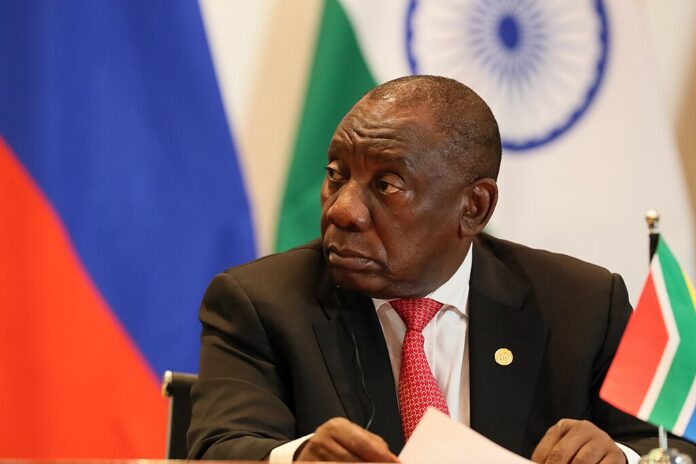South African President Cyril Ramaphosa invites Health Minister Joe Phaahla to discuss potential changes to the National Health Insurance scheme, signalling a possible shift in policy
South African President Cyril Ramaphosa has signaled a readiness to revisit the National Health Insurance (NHI) scheme, following discussions with Health Minister Joe Phaahla. This development marks a significant shift in the ongoing debate over the country’s ambitious healthcare reform.
In a recent statement, Ramaphosa emphasized the importance of dialogue and collaboration to address the complexities surrounding the NHI. “It is time for us to sit down and have a serious conversation about the National Health Insurance,” Ramaphosa said. His remarks indicate a potential re-evaluation of the NHI, a scheme designed to provide universal healthcare coverage to all South Africans.
The NHI, introduced as a key component of the government’s healthcare reform agenda, aims to overhaul the country’s healthcare system by ensuring that all citizens have access to quality medical services, regardless of their financial status. However, the scheme has faced criticism and resistance from various quarters, including healthcare professionals, policymakers, and the public.
Embed from Getty ImagesThe call for a review comes in the wake of ongoing debates about the feasibility and impact of the NHI. Critics argue that the scheme may face implementation challenges and financial constraints, while supporters advocate for its potential to improve healthcare accessibility and equity.
Ramaphosa’s move to open discussions reflects a broader effort to address concerns and build consensus around the NHI. By inviting Minister Phaahla to engage in talks, Ramaphosa aims to explore potential adjustments and refinements to the scheme, ensuring that it aligns with the country’s healthcare needs and financial realities.
The President’s approach highlights a willingness to adapt and respond to feedback, demonstrating a commitment to addressing the complexities of healthcare reform. The outcome of these discussions could shape the future trajectory of the NHI and its role in South Africa’s healthcare landscape.
Analysis:
Political: President Cyril Ramaphosa’s openness to revisiting the National Health Insurance (NHI) reflects a strategic move to navigate the political landscape surrounding healthcare reform. The NHI has been a cornerstone of the government’s policy agenda, but its implementation has faced significant hurdles. By initiating talks with Health Minister Joe Phaahla, Ramaphosa seeks to address criticisms and build political support for the scheme. This dialogue could influence the political dynamics within the ruling party and its approach to healthcare reform, potentially impacting the government’s overall policy direction.
Social: The National Health Insurance scheme represents a critical effort to address healthcare inequities in South Africa. Ramaphosa’s decision to revisit the NHI signals a response to societal concerns about the accessibility and quality of healthcare services. The discussions with Minister Phaahla could lead to adjustments that better address the needs of various communities, including marginalized and underserved populations. Socially, this move highlights the government’s responsiveness to public feedback and its commitment to improving healthcare access for all South Africans.
Racial: In a diverse country like South Africa, the NHI’s impact on racial equity is a crucial consideration. The scheme aims to provide universal healthcare, which could significantly benefit historically marginalized racial groups who have faced disparities in access to medical services. By revisiting the NHI, Ramaphosa may address specific concerns related to racial equity in healthcare. Ensuring that the scheme effectively addresses the needs of all racial groups could contribute to reducing healthcare disparities and promoting a more inclusive healthcare system.
Gender: The National Health Insurance scheme also has implications for gender equity in healthcare. Women, particularly those from lower socio-economic backgrounds, often face unique healthcare challenges. By reassessing the NHI, Ramaphosa and Minister Phaahla have the opportunity to address gender-specific issues, such as maternal and reproductive health services. Ensuring that the NHI adequately meets the needs of women could enhance gender equity in healthcare access and outcomes.
Economic: The financial viability of the National Health Insurance scheme is a significant concern for the South African government. Re-evaluating the NHI involves assessing its economic implications, including funding mechanisms and sustainability. Ramaphosa’s willingness to discuss potential changes reflects an awareness of the economic challenges associated with implementing universal healthcare. The outcome of these discussions will be critical in determining the scheme’s feasibility and its impact on the country’s financial resources.
